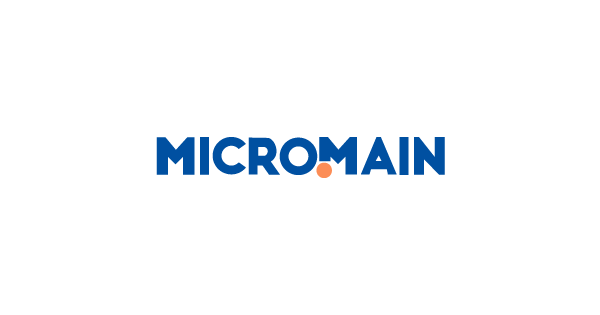As we edge closer to 2024, the role of facilities management continues to evolve dramatically. The question arises as to why keeping track of the facility management trends in 2024 is crucial. The answer is simple - as facilities become increasingly complex and modernized, the responsibility of a facility manager expands. The rise of smart buildings, the rapid technological advancement, and the constant emphasis on sustainability and ESG reporting are transforming how facilities are managed.
As a facilities manager, staying on top of these trends is essential to ensure your building operates effectively and economically. Being informed about the forthcoming trends will help you better prepare for the future and enable you to align your operations and maintenance practices strategically.Here's a brief snapshot of the top 5 trends that are anticipated to steer the course of facility management in 2024:
Modern and complex building systems - A surge in the inclusion of technology in buildings is creating sophisticated building systems that demand specialized management skills.
- Strict building regulations - Increased regulatory changes, especially surrounding environmental standards, pressure facility managers to operate more sustainably.
- Rapid adoption of software and IoT technology - The acceleration of automation in facility management, driven by software and IoT technology, is expected to improve efficiency drastically.
- Emphasis on ESG reporting and sustainability - Recognizing and implementing practices for environmental, social, and governance (ESG) is becoming an increasingly crucial component in facility management and real estate.
- Strategic maintenance management - In light of rising operational costs, strategic maintenance management—and its data-driven insights—will significantly improve production efficiency and manage budgets.

Being aware of these trends won't just keep your facilities modern and efficient—it means jumping ahead of the curve to ensure successful management practices that align with the direction the industry is moving in. The future of facility management lies in embracing technological advancements, prioritizing sustainable practices, and making data-driven decisions.
Trend 1: Embracing Artificial Intelligence (AI) and Internet of Things (IoT)
As we move further into the digital age, the role of technology in facility management cannot be overstated. One of the most significant changes we expect to see as a critical facility management trend in 2024 is the increased adoption of Artificial Intelligence (AI) and the Internet of Things (IoT).
Role of AI and IoT in Facility Management
AI and IoT are revolutionizing the facility management industry by allowing for greater automation and efficiency. These technologies can predict equipment failure more accurately by analyzing historical data and identifying patterns that human operators might miss.
AI and IoT also automate tasks such as scheduling maintenance activities, ordering parts, and even performing some types of maintenance themselves. This automation increases efficiency and frees your maintenance team to focus on more complex tasks. At MicroMain, we're at the forefront of these technological advancements, ensuring our preventive maintenance solutions leverage the latest innovations to deliver the most value to our customers.
Predictive Maintenance Enabled by AI and IoT
Predictive maintenance is a powerful tool that uses historical and real-time data to model asset failure before it occurs. This approach reduces the number of planned tasks in a preventive maintenance (PM) schedule, leading to significant cost and time savings.
The software automatically creates a work order when IoT sensor data is connected to a computer maintenance management system (CMMS). It dispatches it to a designated service provider for repair or replacement. This level of automation and prediction will be a game-changer for facility management in 2024 and beyond.
Case Study: Successful Implementation of AI and IoT in Facility Management
To illustrate the power of AI and IoT in facility management, consider the case of a manufacturing company that implemented our preventive maintenance solution.
The company needed help with high maintenance costs and frequent equipment downtime. By leveraging our AI and IoT-enabled CMMS, they were able to automate their maintenance scheduling, accurately predict equipment failures, and significantly reduce their downtime. As a result, they achieved substantial cost savings and improved operational efficiency.

In conclusion, integrating AI and IoT in facility management is not just a trend but a necessary shift towards more innovative, efficient, and sustainable operations. As we look ahead to 2024, we at MicroMain are committed to harnessing the power of these technologies to help our clients stay ahead of the curve and achieve their maintenance goals.
Trend 2: The Rise of Smart Buildings
The second facility management trend in 2024 is the rise of intelligent buildings. As we continue embracing digital transformation, buildings are becoming more complex and interconnected, creating what we now call "smart buildings."
Understanding Smart Buildings
An intelligent building is a structure that utilizes automated processes to control the building's operations, including heating, ventilation, air conditioning (HVAC), lighting, security, and other systems. An intelligent building aims to create an efficient and safe environment that enhances the comfort and productivity of its occupants. The smart building market is estimated to grow to $408.21 billion in 2030, up from $96.96 billion in 2023. This shows the rapid pace at which this trend grows and its potential impact on facility management.
How Smart Buildings Optimize Energy Consumption and Enhance Occupant Comfort
Smart buildings optimize energy consumption using sensors and IoT technology to monitor and control various aspects of the building's operations. For instance, lighting and HVAC systems can be adjusted automatically based on occupancy or time of day, reducing energy waste.
Moreover, intelligent buildings can enhance occupant comfort by ensuring optimal indoor conditions. They use advanced technology to monitor indoor air quality, temperature, and light levels and adjust these factors to create a comfortable environment for occupants.
The Role of Facility Managers in Managing Smart Buildings
The rise of smart buildings has significantly transformed the role of facility managers. Today, they are responsible for maintaining the physical aspects of a building and managing the complex technological systems that make a building "smart."
Facility managers must have a core competence in building information systems for monitoring and reporting in these new facilities. They also need to understand how to use software and IoT technology to automate various tasks within the building.
At MicroMain, we understand the evolving demands of facility management and provide comprehensive CMMS solutions that empower facility managers to manage intelligent buildings effectively. Our software helps facility managers automate their tasks, gain insights from data, and make informed decisions to improve the efficiency and sustainability of their operations.
The rise of intelligent buildings is indeed a game-changer in facility management. It presents both opportunities and challenges for facility managers. However, with the right tools and skills, they can successfully navigate this trend and create innovative but also sustainable and efficient buildings.
Trend 3: Advanced Security Technologies
As we navigate through a rapidly evolving digital landscape, the importance of advanced security technologies as a critical facility management trend in 2024 cannot be overstated.
The Need for Advanced Security in Facility Management
Security in facility management is no longer just about locking doors or installing surveillance cameras. With the growing threat of physical and digital breaches, facility managers must proactively embrace advanced security measures to protect their assets and ensure the well-being of occupants.
Our assets are not limited to our infrastructure and equipment. They extend to the valuable data we generate and store. Therefore, protecting our facilities goes hand in hand with data security, making it a top priority at MicroMain.
Adoption of Biometrics, Facial Recognition, and Access Control Systems
To strengthen security measures, we are seeing a surge in the adoption of advanced technologies like biometrics, facial recognition, and access control systems. These technologies offer a higher level of security than traditional methods like critical cards or passwords.
For instance, biometric authentication leverages unique physical characteristics of individuals, such as fingerprints or iris patterns, to grant access. This minimizes the risk of unauthorized access, as these characteristics are challenging to forge.
Facial recognition technology, on the other hand, identifies individuals and grants access based on pre-defined criteria. This technology not only enhances security but also improves the convenience and efficiency of access control.
Impact of Video Analytics on Facility Security
Another emerging technology in the realm of facility security is video analytics. Powered by Artificial Intelligence (AI), video analytics in real-time can detect suspicious activities, such as loitering or unauthorized access.
For us at MicroMain, this technology enables us to monitor and respond to security threats promptly. It improves overall safety, reduces the likelihood of incidents, and allows for efficient resource allocation.
Moreover, our CMMS software integrates these advanced security technologies to create a comprehensive security solution. This not only helps in safeguarding our assets but also contributes to creating a secure environment for our occupants.
As we look ahead to 2024, it's clear that adopting advanced security technologies will be a critical facility management trend, shaping how we protect and manage our facilities.
Trend 4: Sustainability and Eco-Friendly Practices
In the evolving landscape of facility management, environmental sustainability has grown from a nice-to-have initiative to a crucial element of successful operations. As we navigate the facility management trend in 2024, it's clear that sustainability and eco-friendly practices will take center stage.
Importance of Sustainability in Facility Management
Increasing public and regulatory attention on environmental impact drives the growing emphasis on sustainability in facility management. The pressure to operate more sustainably comes from various sources, including federal, state, and local regulations like California's A.B.2446 and A.B.593. Additionally, organizations recognize the reputational and cost benefits of adopting sustainable practices.
At MicroMain, we firmly believe that integrating sustainability into facility management strategies is not just about compliance or public image—it's about future-proofing our operations.
Implementation of Energy-Efficient Systems and Waste Management Strategies
Implementing energy-efficient systems is a crucial aspect of sustainable facility management. There are numerous ways to minimize energy consumption, from upgrading HVAC systems to more efficient variants to incorporating intelligent building technologies.
Waste management strategies, such as recycling programs and waste reduction initiatives, also play a crucial role. We can significantly reduce our environmental footprint by minimizing waste sent to landfills.
Our Computerized Maintenance Management System (CMMS) is invaluable in these efforts. It enables us to efficiently track resource usage, identify opportunities for improvement, and ensure optimal utilization of resources. For example, our CMMS aids in preventing breakdowns and downtime through routine inspections, prolonging the lifespan of equipment parts, and reducing waste.
The Role of Renewable Energy Sources in Facility Management
Another significant trend for 2024 is the increased adoption of renewable energy sources. By harnessing the power of solar, wind, and other renewable energies, facilities can further lower their carbon footprint and contribute to a greener future.
At MicroMain, we're excited about the possibilities renewable energy sources offer. As we strive to create a sustainable future, we understand that every step towards energy efficiency and eco-friendly practices is a step in the right direction.
In conclusion, sustainability and eco-friendly practices are more than just a trend—they are integral to facility management. As we move towards 2024, we at MicroMain are committed to leading the way in this significant shift.
Trend 5: Data Analytics in Facility Management
As we continue to explore the facility management trend in 2024, one aspect that cannot be overlooked is the role of data analytics in facility management. With the increasing amount of data generated by IoT sensors and connected devices, facility managers can harness the power of analytics to gain valuable insights and optimize operations.
The Role of Data Analytics in Streamlining Facility Management Processes
Data analytics plays a crucial role in streamlining facility management processes. By analyzing data on energy usage, equipment performance, occupant behavior, and maintenance schedules, facility managers can identify patterns, trends, and potential areas for improvement. Our EAM software at MicroMain enables facility managers to make data-driven decisions, allocate resources efficiently, and predict maintenance needs.
Data analytics tools and platforms provide a centralized system for managing all assets more straightforwardly. This standardization gives back time in your day and makes your asset data work smarter for you, leading to business intelligence gained from an integrated EAM solution.
How Data Analytics Helps in Predictive Maintenance and Operation Optimization
Predictive analytics, in particular, plays a pivotal role in proactive maintenance. Potential equipment failures can be identified by analyzing historical data and using AI algorithms before they occur. This allows for timely repairs and minimizes downtime.
In addition, data analytics can help optimize space utilization. Facility managers can analyze occupancy patterns and decide on space allocation and design. As a result, facility managers can optimize energy usage, improve operational efficiency, and enhance the overall facility performance.
Case Study: Successful Use of Data Analytics in Facility Management
Let's look at a real-world example of how data analytics can revolutionize facility management. A manufacturing company implemented our EAM software to manage their maintenance operations better. Using data analytics, they identified equipment usage and performance patterns, enabling them to predict potential failures and schedule preventative maintenance accordingly. This significantly reduced unplanned downtime and maintenance costs, showcasing the power of data analytics in facility management.
In 2024 and beyond, the facility management industry will continue to shift toward data-driven decision-making. At MicroMain, we are committed to providing advanced solutions that enable facility managers to stay ahead of these trends and manage their facilities more effectively and efficiently. Data analytics, paired with advanced technologies like AI and IoT, will be instrumental in shaping the future of facility management.
Conclusion
Recap of the Emerging Trends in Facility Management for 2024
As we've explored, the facility management trend in 2024 promises exciting advancements and shifts in the landscape. From the increasing integration of AI and IoT to the rise of intelligent buildings, the adoption of advanced security technologies, the emphasis on sustainability and eco-friendly practices, and finally, the critical role of data analytics in facility management - each of these trends has the potential to impact how we manage facilities in the future significantly.
The Future of Facility Management: A Forecast
The global Facility Management market size, valued at USD 15201.84 million in 2021, is expected to expand at a CAGR of 9.11% during the forecast period, reaching USD 25650.41 million by 2027. Our discussed trends will likely drive this growth as facilities increasingly adopt advanced technologies and sustainable practices. Net-zero goals, AI-driven automation, predictive maintenance, and strategic space planning will all play pivotal roles in this growth.
Furthermore, with MicroMain's CMMS and work order management software, facilities can stay ahead of these trends, leveraging advanced functionalities to optimize their operations.
Final Thoughts on the Role of Facility Managers in Navigating These Trends
The role of facility managers in this rapidly evolving landscape is paramount. Facility managers must stay abreast of these trends and understand how to apply them to drive efficiency, sustainability, and security.
It's essential for facility managers to continuously learn and adapt, ensuring they're leveraging the most effective strategies and technologies in their operations. This includes proficiently using advanced technologies like AI and IoT, implementing sustainable practices, and using data analytics to make informed decisions.
At MicroMain, we understand the challenges that come with navigating these trends. That's why we're committed to providing the solutions and support to help facility managers meet these challenges head-on. Our goal is to empower you to manage your facilities more effectively and efficiently, keeping pace with the evolving demands of the future.
If you'd like to explore more about how MicroMain can help you navigate the future of facility management, contact us. We are always here to support your facility management journey.

To explore the topic of equipment preventive maintenance further, visit our topic overview page.
 For immediate assistance, please call us at (512) 328-3235
For immediate assistance, please call us at (512) 328-3235



